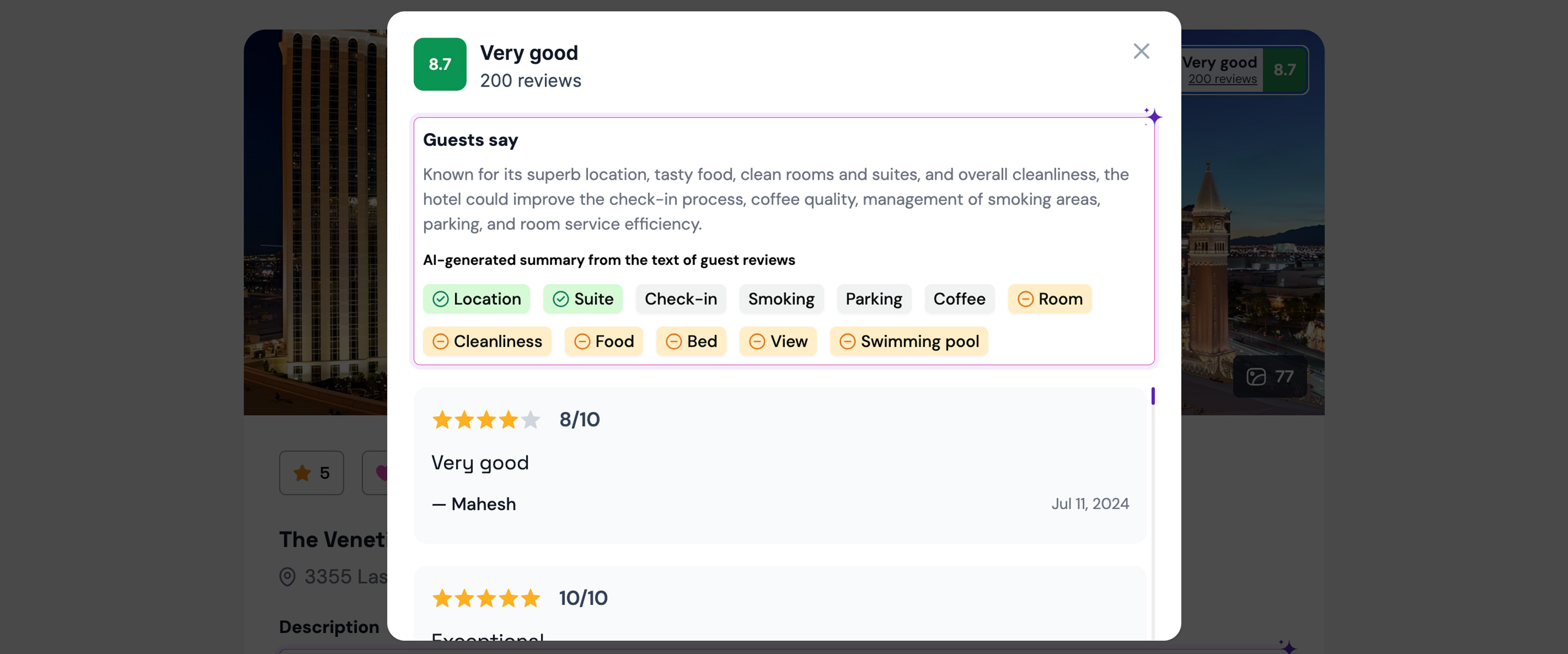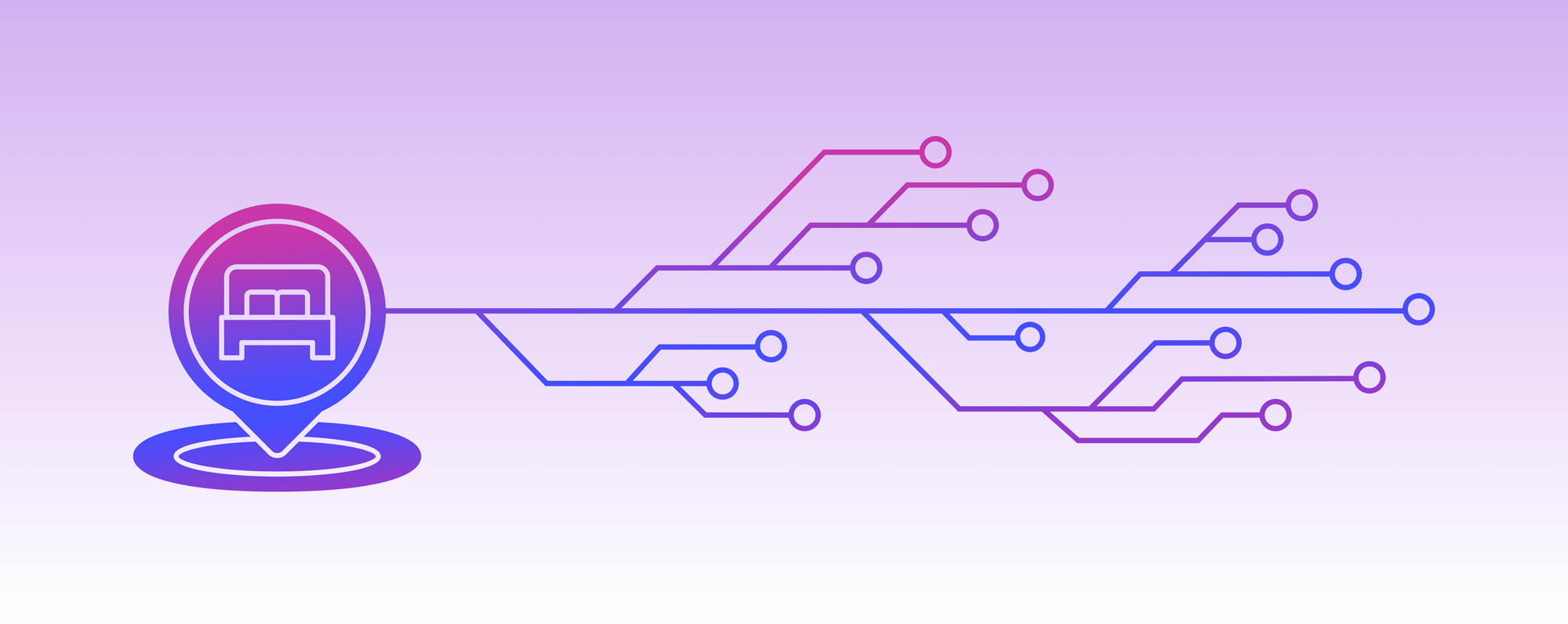In the bustling arena of hotel distribution, the silent power of data normalization quietly dictates success.
In the complex landscape of hotel distribution, where myriad properties compete for attention, the quality and reliability of data form the cornerstone of success. Amidst an era of information overload, the practice of data normalization emerges as a crucial, yet often undervalued, catalyst for efficiency and effectiveness in hotel distribution.
Data normalization transcends mere data tidying; it strategically transforms data into a potent asset, driving decision-making, enhancing user experience, and boosting revenue. By standardizing and structuring data to eliminate redundancies, it ensures every detail, from room types to prices, is accurate, accessible, and actionable, directly impacting customer choices and satisfaction.
Despite its benefits, misconceptions often lead industry players to overlook data normalization. This article demystifies this critical practice, showcasing its role in propelling operational excellence and competitive advantage in hotel distribution. Join us as we unveil the transformative power of data normalization, turning intricate data into a strategic asset.
Understanding Data Normalization
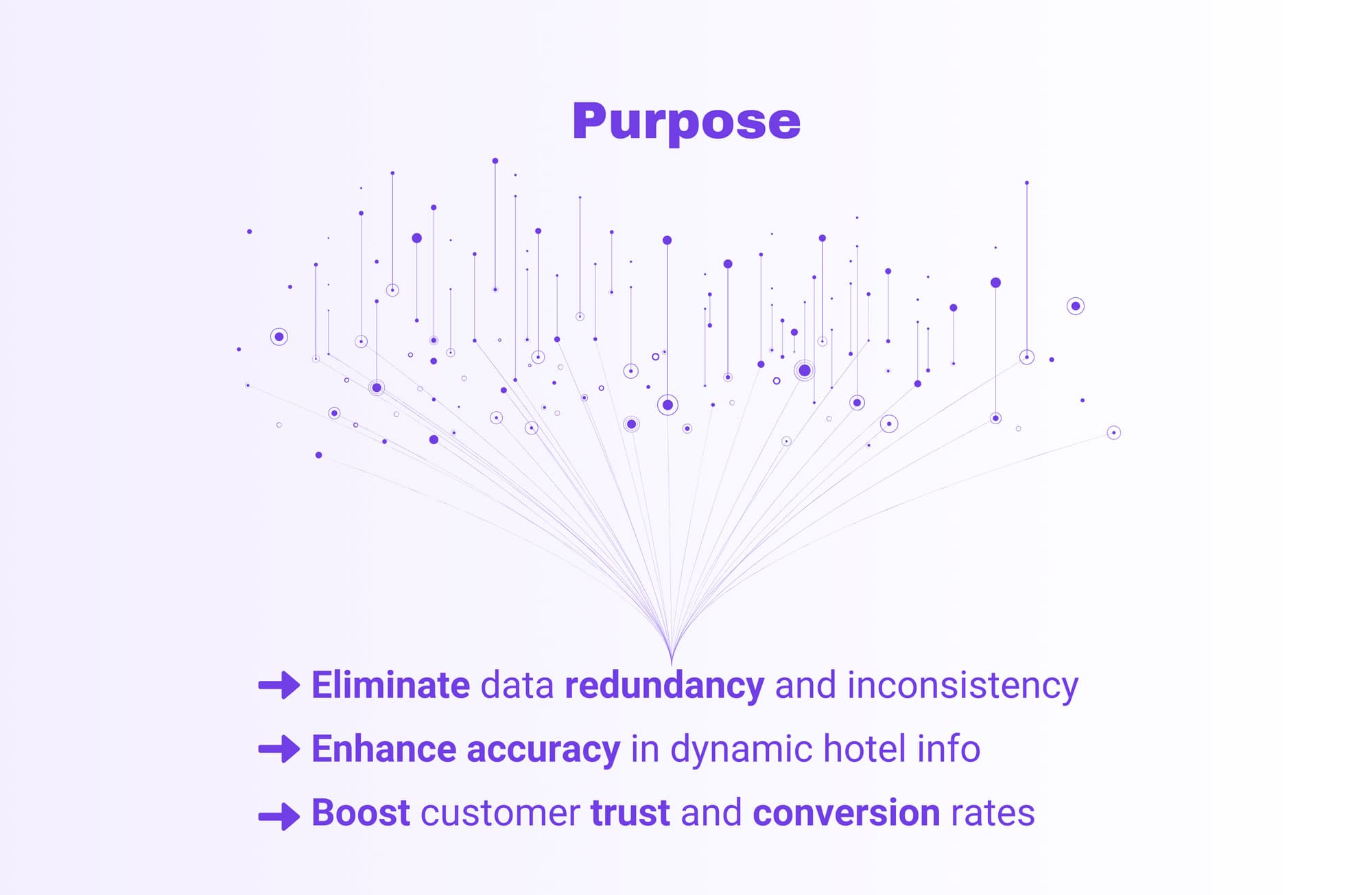
Data normalization is a methodical process of organizing and structuring data to minimize redundancy and enhance coherence in hotel distribution. It converts scattered and irregular data into a streamlined, reliable format, crucial for accuracy and accessibility.
The Concept: At its essence, data normalization standardizes how data is stored and represented, ensuring uniformity in hotel names, addresses, room types, and amenities across the dataset.
The Purpose: To eliminate data redundancy and inconsistency, enhancing accuracy in dynamic hotel info, thus boosting customer trust and conversion rates. Normalizing data across properties aids in clear feature comparison, simplifying decision-making for customers.
Methods of Normalization: Involves structuring and standardization to create a uniform format for all data points, ensuring dataset consistency.
De-duplication: Identifies and removes duplicate entries to prevent the same room from being listed multiple times under different names.
Linking and Matching: Links related data from different sources and ensures they match, merging similar records into a single accurate listing.
Enrichment: Enhances data with additional information, making listings both consistent and informative.
Understanding data normalization is crucial for transforming error-prone datasets into reliable resources that enhance inventory management and customer satisfaction. Though beneficial, it requires diligence and a deep understanding of the data to retain its meaning and ensure its usefulness.
Cupid's Approach to Data Normalization
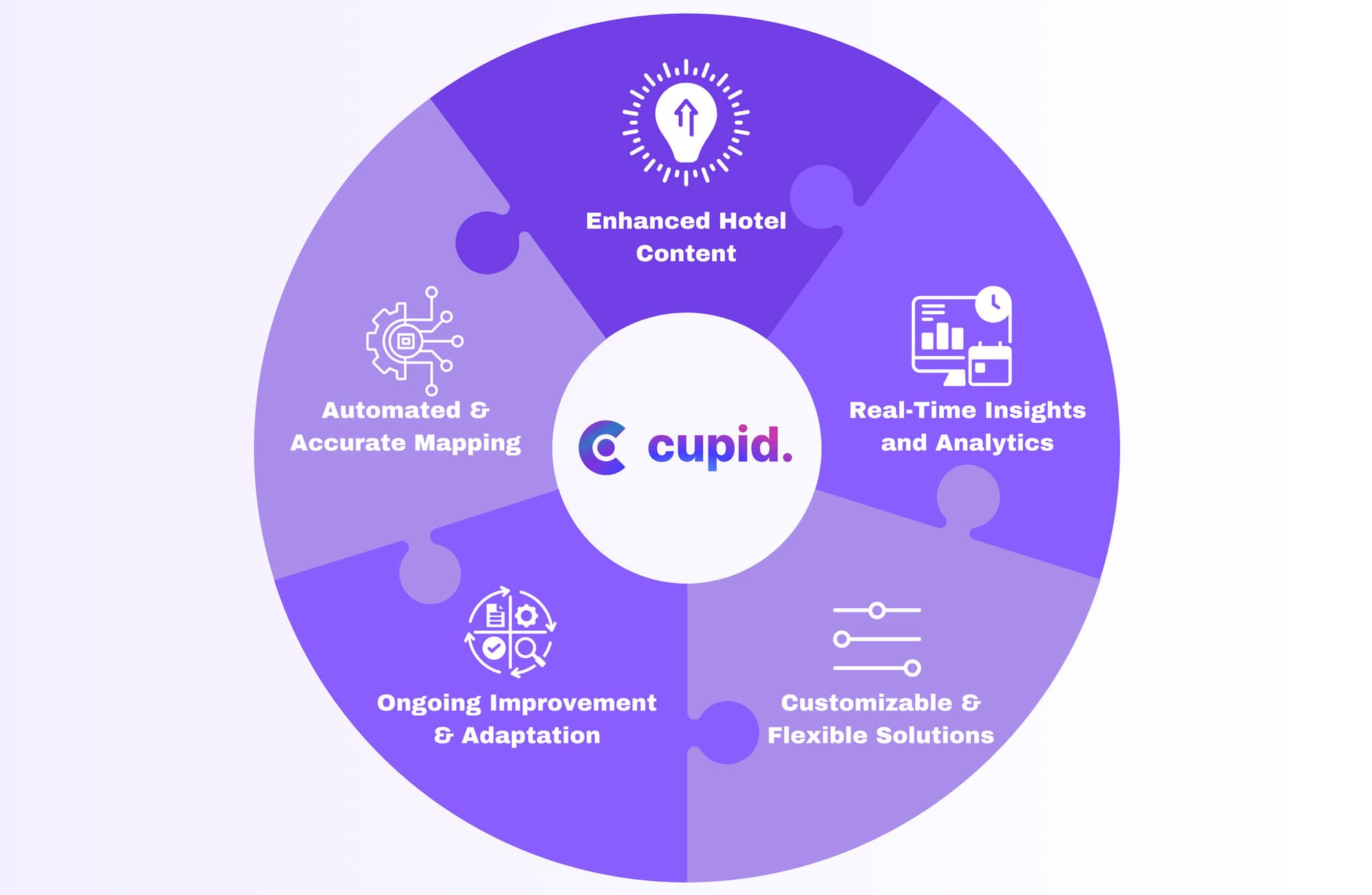
Cupid leads in data normalization within the hotel distribution industry, offering advanced solutions that enhance data quality and drive efficiency. Its approach, integrating technology and deep industry knowledge, transforms data into a strategic asset, revolutionizing hotel distribution.
Automated and Accurate Mapping: Utilizing advanced machine learning, Cupid automates the mapping process, reducing manual effort and enhancing accuracy, ensuring each listing is accurate and consistent.
Enhanced Hotel Content: Cupid focuses on normalizing hotel content using AI to standardize and enrich descriptions, amenities, and images, making listings not just uniform but engaging and informative.
Real-Time Insights and Analytics: With a commitment to up-to-date data, Cupid offers real-time dashboards that track and manage inventory mappings, reflecting changes promptly and accurately.
Customizable and Flexible Solutions: Understanding diverse business needs, Cupid provides customizable solutions, allowing users to tailor the normalization process to their specific requirements.
Ongoing Improvement and Adaptation: Cupid's processes are designed to learn and adapt, using feedback and machine learning to refine its algorithms continually, ensuring they stay effective and relevant.
Cupid's approach is not just about normalizing data; it's about leveraging it as a powerful tool to streamline operations, drive revenue, and enhance customer experience, ensuring its solutions are effective now and in the future.
The Impact of Data Normalization in Hotel Distribution
Data normalization transcends mere data management in hotel distribution, significantly impacting operational efficiency, customer satisfaction, and revenue. This section explores how it's a crucial element driving success and competitive advantage in this dynamic industry.
Avoiding Duplication and Errors: Data normalization significantly reduces duplication and errors, ensuring unique and accurate representation of each hotel and room, crucial for maintaining professionalism and avoiding costly mistakes.
Enhancing User Experience: By ensuring listings are consistent and reliable, normalized data builds trust among customers, improving conversion chances, enhancing reputation, and driving repeat business.
Streamlining Operations: Normalization simplifies various processes, allowing for automation of routine tasks, reducing manual intervention, saving time and resources, and enabling quicker adaptation to market changes.
Data-Driven Decision Making: Providing a solid foundation for analytics, normalized data allows businesses to track performance accurately, identify trends, and make informed decisions, shifting from reactive to proactive strategies.
To illustrate how data normalization can positively impact your business, take a look at the following table, illustrating how supplier data is normalized:
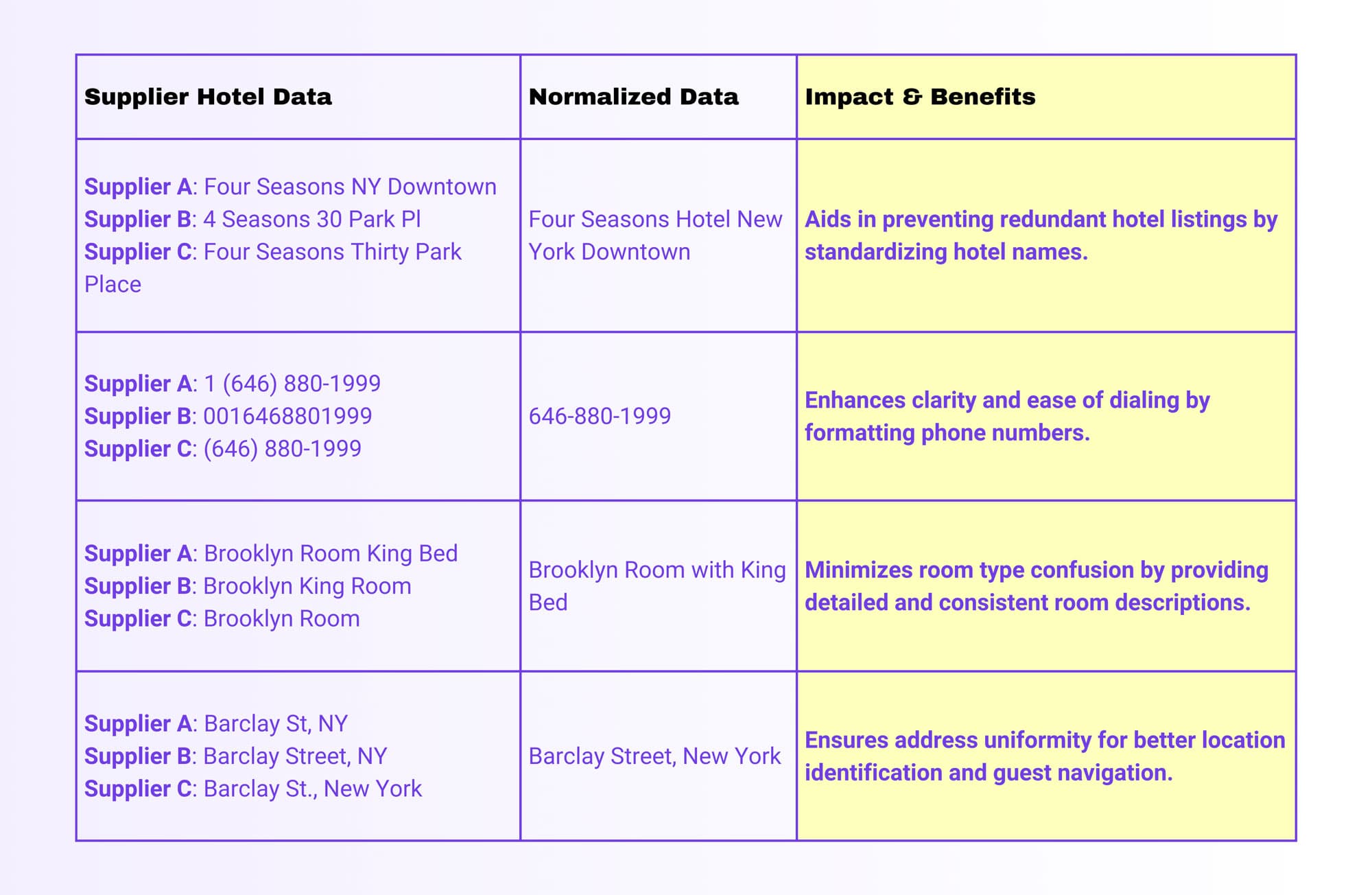
The profound impact of data normalization is clear, touching every business aspect and ensuring clean, consistent, and comprehensive data. By enhancing their service offering, streamlining operations, and making informed decisions, businesses can secure a commanding position in the competitive hotel distribution landscape.
Cupid's Data Normalization in Action
To understand the transformative power of data normalization in hotel distribution, observing Cupid's approach provides a living blueprint for revolutionizing operations. This section demonstrates Cupid's data normalization in action, showing its impact on efficiency, accuracy, and business success.
Real-Time Insights and Analytics: Cupid's platform, powered by real-time insights, ensures users work with the most current and accurate data, enabling timely, informed decisions as hotel details change.
Customizable and Flexible Solutions: Acknowledging unique business challenges, Cupid offers adaptable solutions, allowing users to tailor the normalization process to their specific needs for a more personalized approach.
Seamless Integration and User-Friendly Experience: Data normalization is seamlessly integrated into every user interaction with Cupid, ensuring a smooth and intuitive experience without the need for manual intervention.
Continuous Improvement and Adaptation: Cupid's platform evolves with the industry, leveraging machine learning and feedback to continuously improve and adapt its algorithms for lasting effectiveness and accuracy.
Cupid's data normalization is not just a feature; it's at the core of its service, impacting every hotel distribution process aspect and providing a model for effective implementation and business success. By examining Cupid's approach, businesses can gain insights into harnessing data normalization's power to transform their operations and reach their goals.
Benefits of Embracing Data Normalization with Cupid
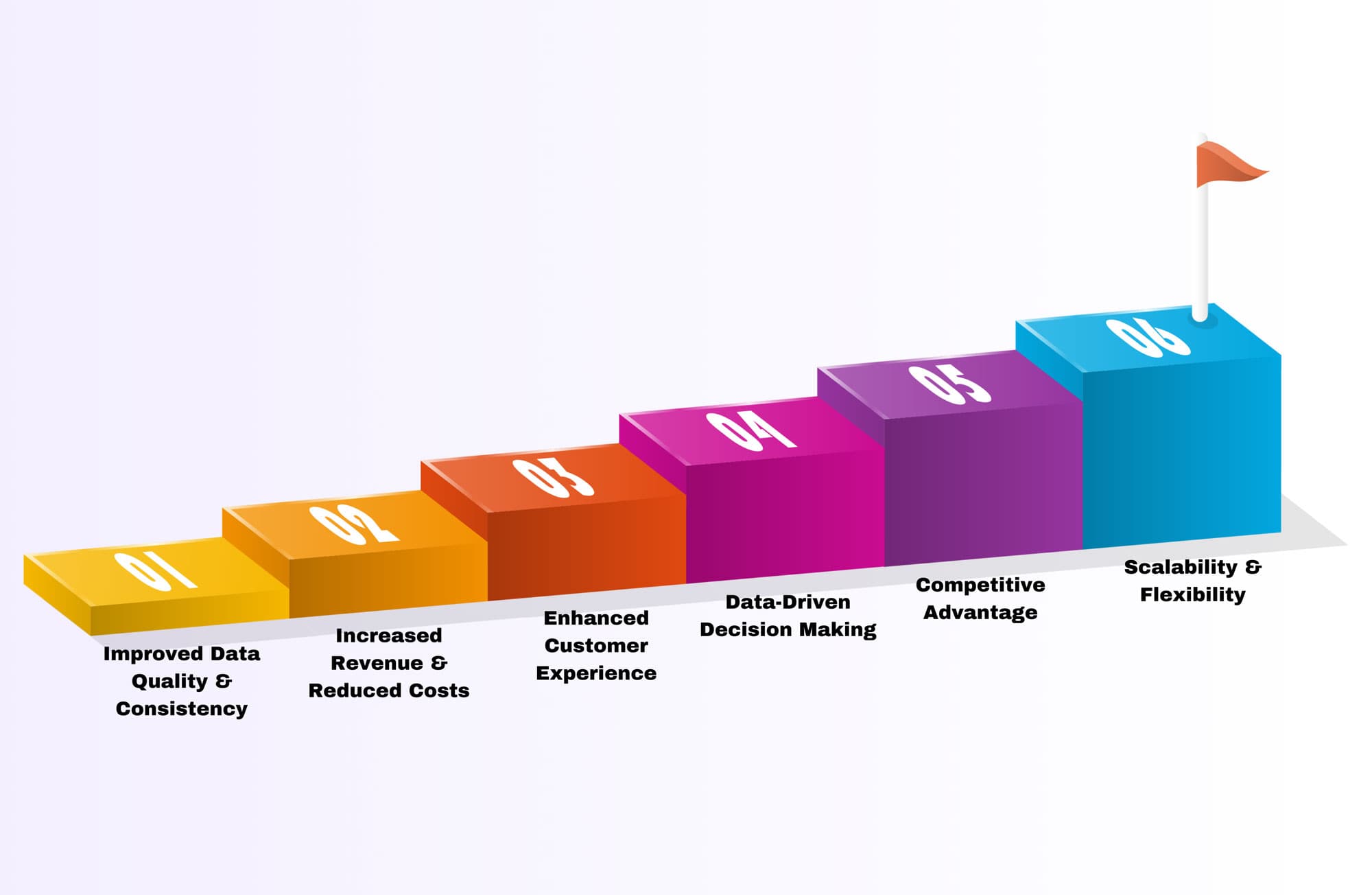
Embracing data normalization through Cupid significantly elevates hotel distribution businesses, offering key advantages for improved performance, customer satisfaction, and growth.
Improved Data Quality and Consistency: Cupid's advanced algorithms substantially enhance data quality and consistency, ensuring customers access standardized, accurate, and reliable information crucial for informed decisions.
Increased Revenue and Reduced Costs: Cupid helps avoid costly errors and streamlines processes, reducing operational costs and freeing resources for strategic initiatives that drive revenue growth.
Enhanced Customer Experience: Cupid's normalization ensures listings are accurate and detailed, improving user experience, increasing bookings, and enhancing the business's reputation and reach.
Data-Driven Decision Making: With real-time analytics, businesses gain accurate insights for informed decision-making, adjusting strategies based on clear and comprehensive data.
Competitive Advantage: Cupid's data normalization provides a professional edge, setting businesses apart in the marketplace and establishing them as industry leaders.
Scalability and Flexibility: Cupid's scalable and adaptable solutions grow with the business, ensuring data management needs are met without compromising quality or performance.
Embracing data normalization with Cupid brings clear and compelling benefits, contributing to a stronger, more efficient, and competitive business. Investing in Cupid's advanced techniques not only addresses current data challenges but also sets the stage for future success and growth.
Getting Started With Cupid
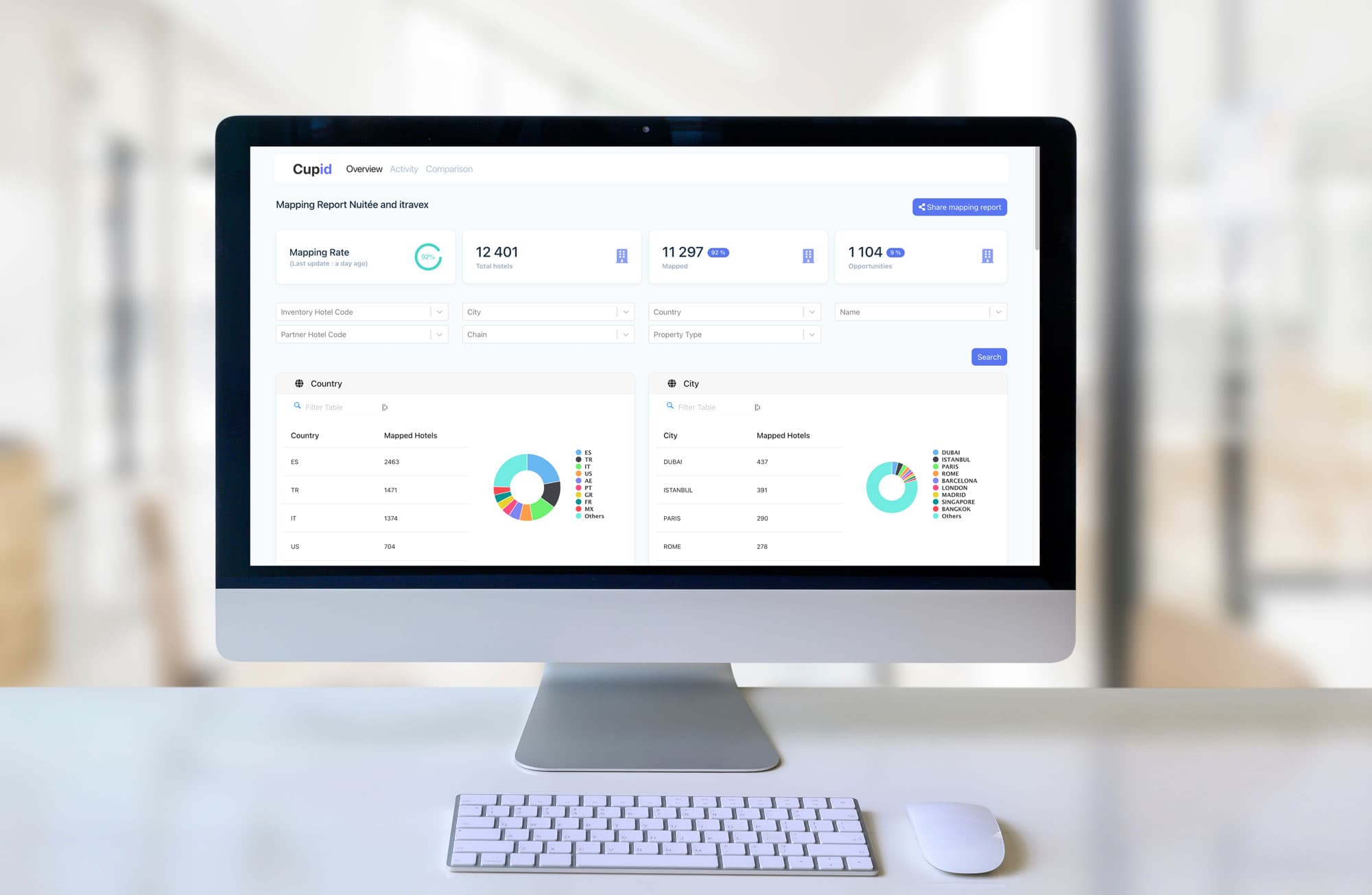
Embarking on the journey of data normalization with Cupid is a strategic move that can redefine the way your hotel distribution business operates, making it more efficient, reliable, and competitive.
Assess Your Current Data Situation: Understand where your data comes from, how it's currently processed, and the challenges you're facing. This assessment will help you appreciate the full extent of improvements and benefits Cupid can bring to your operations.
Set Clear Objectives: Whether it's reducing errors, enhancing customer experience, or streamlining operations, having clear objectives will help tailor Cupid's solutions to your specific needs and measure success effectively.
Engage with the Cupid Team: Cupid’s support team can guide you through the specific features and customization options that would benefit you the most.
Start with a Free Trial: Consider starting with a free trial using a segment of your data or operations. This approach allows you to see Cupid in action and understand its impact on a smaller scale before rolling it out across your entire operation.
Training and Support: Take advantage of training sessions and ongoing support offered by Cupid.
Monitor and Iterate: Take advantage of its analytics and reporting features to assess its impact. Be prepared to iterate and adapt your usage as you learn more about its capabilities and as your business evolves.
Embrace the Change: Lastly, embracing data normalization is as much a cultural shift as a technical one. Encourage your team to see Cupid as a tool that empowers them to work more efficiently and effectively.
Getting started with Cupid is a straightforward process that promises substantial rewards. By assessing your needs, setting clear objectives, and engaging closely with the Cupid team, you can ensure a smooth integration and immediate improvements in your data management practices.
Conclusion
In the competitive world of hotel distribution, data normalization is a strategic imperative, central to transforming chaotic information into a streamlined asset, as demonstrated by Cupid's sophisticated approach. This method is not just a technicality but a transformative strategy that enhances every business aspect by ensuring quality, avoiding errors, and enabling informed decisions.
Adopting Cupid's data normalization is an investment in your business's future, continuously improving and adapting to set industry standards, outpace competitors, and provide an unmatched customer experience. Embrace this journey with Cupid and lead the way in a data-driven future, witnessing the profound impact of refined data on your operations, customer satisfaction, and bottom line.


